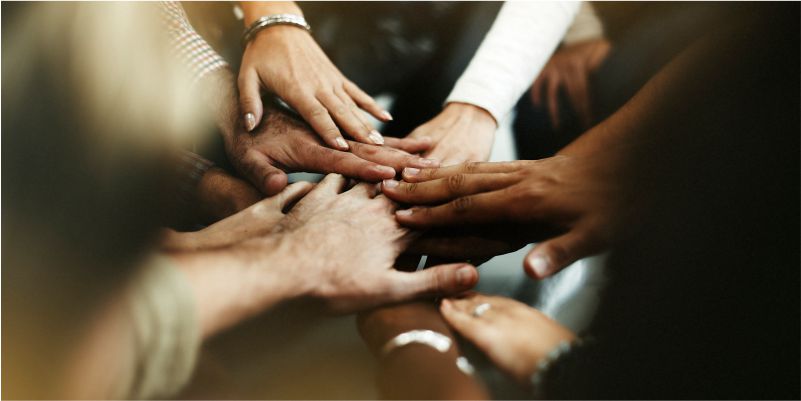
-
As we enter the new year, there is cause for both hope and concern. Hope, because of our past record of holding regular elections and peaceful transfer of power in all instances. This level of human resources and potential dynamism is unmatched the world over. The conducting of elections has become safer, more holistic, and resourceful over the years. Finally, the electorate is more aware, willing and vigilant in its participation because of successful programmatic voter education. We have more women turning up to vote now than at any other time in our history. We take a lot for granted and realize its value only when we see the electoral process being sabotaged even in mature democracies like the US and UK.
"There are more than two hundred million Muslims in India and it is critical that they are not alienated and targeted. Social cohesion has emerged as one of the biggest security challenges in India today."
There are many concerns too because democracy is more than just the task of holding elections. Democracy means that all citizens have the freedom of exercising their fundamental rights, living in dignity and practising their faith and way of life in a secure atmosphere. Our elections have become hostage to money power, mob fury, malignant misinformation, increasing intimidation and hate speech. Instead of striving to achieve long-term, holistic benefits, the party cadres in many states are busying themselves with sophisticated means of manipulation and coercion for achieving their own blinkered interests.
Democracy also means that every individual feels and is treated as equal before the law. Majoritarian politics is distorting how we treat and view each other. There are more than two hundred million Muslims in India and it is critical that they are not alienated and targeted. Social cohesion has emerged as one of the biggest security challenges in India today. It is not just the State and its institutions that have to work to better this, but all sections of society, above all the political parties, media, intellectuals and religious leaders.
Over the last decade, the government has successfully cultivated close ties with the Gulf, Arab states and other Islamic countries such as Indonesia, Malaysia, Bangladesh and Maldives. What it also needs to do with equal vigour is strengthen the social fabric inside the country. National integration is the call of the hour.
"The Election Commission must fearlessly uphold the integrity of our elections. It should not waver in its Constitutional mandate."
A special word needs to be said about social media. The information revolution has brought the world closer. Yet it has become a most dangerous tool that is increasingly being weaponized. Surveillance, misinformation, online radicalization have warped the platforms of social media into major security threats. It is the hundreds of millions of young Indians who are the most vulnerable to such indoctrination. Social media and misuse of online platforms through propagation of hate and fear need to be countered with all our might.
Regional economic imbalances, unemployment, and high variations in social development indicators across the country, in particular between the southern states and the most populous northern states, have to be treated with great sensitivity. If the present differences grow unchecked, they will lead to even greater intolerance, migration and social unrest. We are the youngest country with over 900 million under the age of 45 years. It is critical that the demographic dividend does not become a demographic liability. Providing the skills and creating jobs for the youth are therefore the most urgent national priority.
In 2023, nine States are due for elections. We have the requisite machinery to ensure free and fair elections. However, the Election Commission, political parties and the media must ensure that the campaigning and the broader electoral discourse does not make any community feel threatened as the target of violence. The multitude of laws and the Model Code of Conduct, with all its moral force, must be effectively used to increase accountability and fairness during the elections.
Strong institutions are the bedrock for democratic and open societies like ours. Not only do institutions have to be strong and objective, but the overall social and cultural contexts within which they operate must also be free of conflict and insecurity. This is necessary to instil confidence among the public. Our judiciary is in dire need of reform. ‘Justice delayed is justice denied’ is not just a hollow proverb but a sad reality. Similarly, the Election Commission must fearlessly uphold the integrity of our elections. It should not waver in its Constitutional mandate. Finally, a strong and credible political opposition is essential for the health of any democracy.
In order to protect the moral fabric of our republic, we must redeem ourselves of elements of hate and fear by powerfully reasserting, like our founding figures, the great values of non-violence, equality and communal solidarity. Plurality is our abiding identity and we must unitedly defend it with all our might. If we sincerely strive for it, the largest democracy can certainly become the greatest democracy.
(Exclusive to NatStrat)